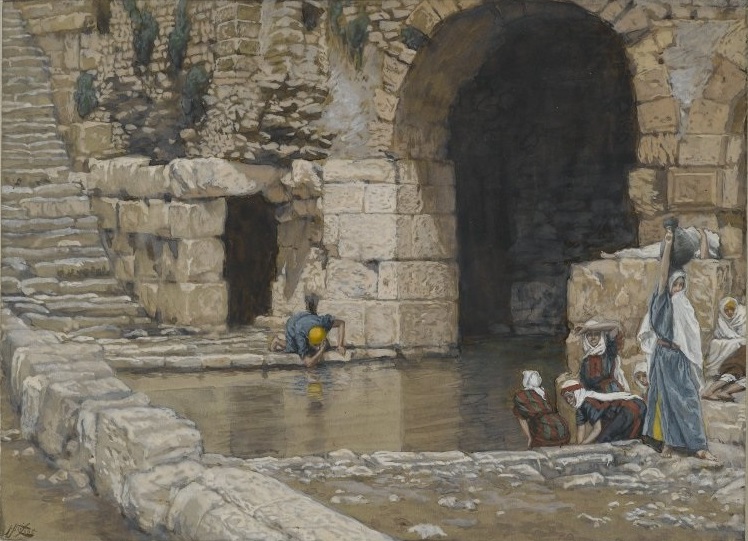2 Kings 18:17-22, 18:37-19:1, 19:14-20, 20:20, the Upper pool
Psalm 107:31-43, Pools in the desert
Isaiah 41:17-20; 42:10-16, Pools for the poor
John 5:1-15, Pools for bathing
John 9:1-11, the Pool of Siloam
Seas - Four of them are all the same
Numbers 34:1-12, the Sea of Chinnereth
Luke 5:1-11, the Lake of Gennesaret
Mark 7:24-37, the Sea of Galilee
John 6:1-21, the Sea of Tiberius
Other Seas
Jeremiah 49:7-22, the Red or Reed Sea
Joshua 15:1-12, the Salt or Dead Sea
1 Kings 7:13-26, a very large brass basin in the temple
Ezekiel 47:1-21, the Great or Mediterranean Sea
2 Corinthians 11:25; Acts 27:1-17, the Great or Mediterranean Sea
Waters can be almost any size or type
Job 38:1-11, 25-30, 34-38, Flood waters
Psalm 69:1-18, Metaphorical waters
Matthew 3:1-17, Baptismal water
Springs, Wells, and Streams
Copyright information, disclaimers, and sponsors
Return to homepage

The Blind Man Washes in the Pool of Siloam, by James Tissot. Courtesy of the Brooklyn Museum and Wikimedia. Public domain in the U.S.